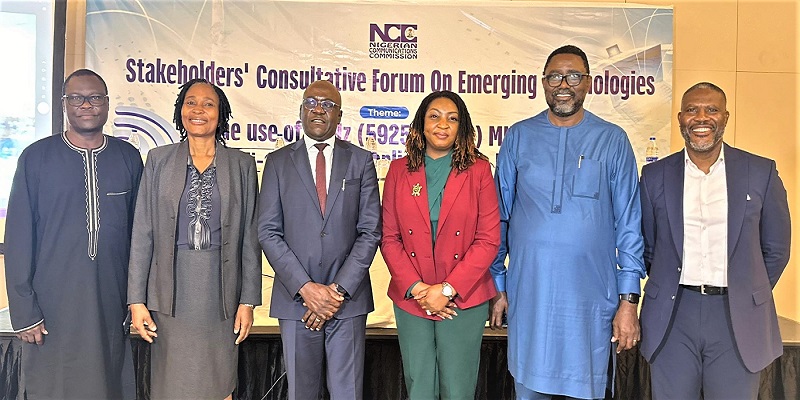News Highlights:
- The Nigerian Communications Commission (NCC) is seeking feedback from telecom stakeholders on the use of the 6GHz band, which spans from 5925MHz to 7125MHz.
- This band is crucial for supporting high-speed internet and advanced applications as Wi-Fi plays an increasingly important role in broadband connectivity for homes, offices, and enterprises.
The Nigerian Communications Commission (NCC) is seeking input from telecom stakeholders across the country on the use of the 6GHz band for Wi-Fi -6 and International Mobile Telecommunications (IMT), an initiative it said aligns with its commitment to collaboration, participatory regulation, and industry-wide consultations in carrying out its regulatory responsibilities.
The 6GHz band, spanning from 5925MHz to 7125MHz, offers a substantial increase in available spectrum, which is crucial for supporting the growing demand for high-speed internet and advanced applications as Wi-Fi plays a crucial role in the distribution of fixed broadband connectivity in homes, offices, and various other environments.
Addressing telecom industry stakeholders at the Annual Stakeholders’ Consultative Forum on Emerging Technologies held in Lagos on Thursday, Executive Vice Chairman/Chief Executive Officer of the NCC, Dr. Aminu Maida said in obedience to global best practices, the Commission was of the belief that its actions must be guided by decisions that take into cognizance, the inputs from all stakeholders in the telecom industry.
Maida who was represented by Engr. Abraham Oshadami, NCC’s Executive Commissioner, Technical Services, said that the vast majority of home internet traffic is connected to the end-user through Wi-Fi, noting that “in enterprise settings, Wi-Fi is essential for handling large amounts of data and simultaneously connecting large numbers of devices with improved reliability, higher data throughput, and lower latencies.”
He, however, observed that the 5GHz and 2.4GHz that are being used for Wi-Fi (Wi-Fi 5) at the moment are becoming overwhelmed due to an increase in demand for capacity and therefore, opined that it is imperative to identify other frequency bands to complement the 5GHz and 2.4GHz.
“The recently concluded 2023 World Radiocommunications Conference (WRC-23) allocated the 6GHz band for Wi-Fi and IMT applications with different recommendations on how to use the band. This was the outcome of a long study cycle process leading to the decision at the WRC-2023 in Dubai, United Arab Emirates,” he said.
The EVC stated that to accomplish the Commission’s objectives in driving its strategic goals, it identified some key factors that would drive this, which include people, collaboration, data, compliance, and digitalization.
“Guided by our actions in the right direction and, of course, that of the Federal Government through the Ministers Strategic Blueprint cantered around knowledge policies, infrastructure, innovation, entrepreneurship and Capital as well Trade, we have been able to set the ball rolling to enhance telecommunication service delivery in Nigeria,” he said.

